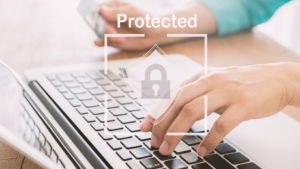In today’s digital age, personal data has become one of the most valuable commodities. Every online interaction, from social media posts to online shopping, generates a wealth of information about individuals. This data is often collected, analyzed, and monetized by companies, raising critical questions about who truly owns it.
As individuals become more aware of their digital footprints, the concept of personal data ownership gains traction. People are increasingly concerned about how their information is used and who profits from it. This growing awareness has sparked debates about privacy rights and the need for regulations that empower individuals to take control of their data.
Understanding personal data ownership is crucial in navigating the complex landscape of digital privacy. By exploring this topic, individuals can better protect their information and assert their rights in an era where data is power. As discussions continue to evolve, the future of data ownership remains a pivotal issue in the digital world.
Personal Data Ownership

Personal data ownership refers to individuals having control over their personal information collected by various digital platforms. This control is vital in ensuring that users know how their data is handled and can consent to its use. Entities like tech companies often store and process data to enhance user experience, target advertising, and improve services.
Legal frameworks, such as the General Data Protection Regulation (GDPR) in Europe, have set precedents for how personal data should be managed. These regulations grant individuals rights over their data, including access, correction, and deletion. In the United States, laws like the California Consumer Privacy Act (CCPA) offer similar protections, giving users the ability to opt-out of data sales.
The Importance of Personal Data Ownership
Personal data ownership represents a fundamental shift toward empowering individuals in the digital realm. As personal information becomes a valuable asset, understanding its ownership is crucial for exercising control.
Protecting Privacy
Personal data ownership plays a vital role in safeguarding privacy. When individuals control their data, they can make informed decisions about who accesses it. According to the International Association of Privacy Professionals (IAPP), privacy considerations are integral in transactions involving personal data. By maintaining ownership, individuals can minimize risks of unauthorized access and potential data breaches. Privacy measures ensure that sensitive data remains confidential and protected.
Enhancing Control Over Personal Information

Ownership enhances control over personal information, allowing individuals to decide how their data is used. With frameworks like GDPR and CCPA, users gain rights to access, update, and delete their data. Deloitte reports that these rights provide transparency and empower consumers in the digital market.
By retaining ownership, individuals can negotiate terms with data platforms, ensuring their personal information is handled according to their preferences. This control supports honoring both personal and legal standards in today’s interconnected landscape.
Challenges in Personal Data Ownership
Personal data ownership faces a range of challenges in the current digital environment. These challenges stem from legal complexities and technological advancements that can impede individuals’ ability to control their data.
Legal and Regulatory Issues
Legal and regulatory challenges complicate personal data ownership. Inconsistent data protection laws across different jurisdictions cause confusion. For instance, the GDPR in Europe enforces strict data control, whereas jurisdictions lacking similar regulations leave users without protection. Additionally, enforcement difficulties arise when entities operate globally, making it hard to apply local laws consistently. This legal fragmentation complicates users’ understanding of their rights and limits their ability to exercise control over their data.
Technological Barriers
Technological barriers hinder the effective ownership of personal data. Data is often stored in disparate and proprietary systems, preventing easy access and control. Complex data infrastructures make it challenging to ensure data portability and interoperability. Furthermore, emerging technologies such as AI can process personal data in ways users might not fully understand, limiting transparency. As personal data becomes increasingly integrated into digital services, these technological complexities pose significant obstacles to actualizing personal data ownership.
Current Trends in Personal Data Ownership

Growing awareness of personal data ownership drives innovation in tech and business sectors. These trends shape how data is managed and protected.
Emerging technologies significantly impact personal data ownership. Blockchain technology offers decentralized control over personal information, ensuring transparent and tamper-proof data management.

